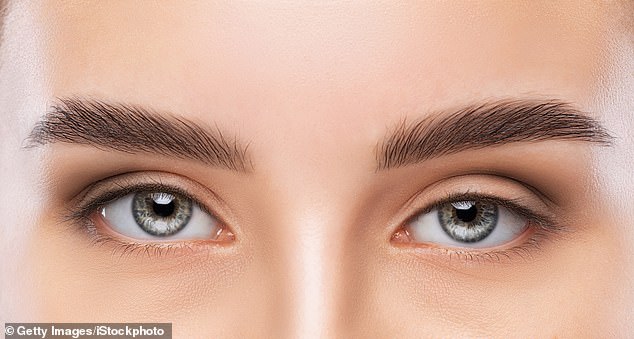The surprising facial feature that could reveal someone is a narcissist
<!–
<!–
<!– <!–
<!–
<!–
<!–
People with dark, bold and well-defined eyebrows may be hiding a sinister personality trait, psychologists say.
A study has found that prominent eyebrows can reveal to others that some people are narcissists.
Experts warned that these individuals – with an excessive interest or admiration for themselves – would be more likely to invest in perfecting their eyebrows to achieve a more striking or unique look.
Dr. Ramani Durvasula, a psychologist in Los Angeles, said: 'Narcissistic people care a lot about their appearance. They would probably spend more on it – more time, more money.”
While the study suggests people may be able to accurately predict whether someone is a grandiose narcissist — someone who has an excessive need for admiration and attention — based on the “distinctiveness” of their eyebrows, experts say the results come with some doubt . notes.

Dr. Ramani Durvasula, a psychologist, said: 'Narcissistic people care a lot about their appearance. They'd probably spend more on it – more time, more money (stock image)
Dr. Durvasula told USA Today: 'Yes, narcissistic people care a lot about their appearance…but obviously not everyone who takes care of their eyebrows is narcissistic to any degree.'
a study conducted in 2018 pointed out that the eyebrows are a hallmark of grandiose narcissists – a form of narcissistic personality disorder (NPD) in which a person behaves as if superior to others.
Conducted by researchers at the University of Toronto, participants were given the Narcissistic Personality Inventory Test to diagnose the disorder.
Photos of the participants were then cropped so that only their eyebrows were visible and these were shown to a separate group.
This group assessed the eyebrows on properties such as care, distinctiveness and femininity.
The results showed that people who were judged to have prominent eyebrows – including thickness and density – were more likely to be grandiose narcissists.
The authors suggested that this was because narcissists wanted something aesthetically unique and recognizable.
“Eyebrows facilitate facial recognition,” Dr Miranda Giacomin told the Independent at the time, adding: “Narcissists may maintain prominent, thick and dense eyebrows to increase recognition, something they are motivated to do.”
People with NPD, diagnosed through psychological assessments, are those who are focused on an idealized and grandiose image of themselves – often to avoid deep feelings of insecurity.
Men are about twice as likely to be narcissistic as women, with signs of the disorder appearing early in life or in the teenage years.
Causes of the disorder include negative experiences as a child – such as trauma or rejection – or having overly permissive parents.
People with the disorder are likely to exhibit a sense of entitlement and manipulative behavior and may frequently seek admiration from others.
They may also be arrogant or lack empathy for others.
Estimates suggest that about 0.5 percent of the U.S. population, or one in 200 people, has the condition.
